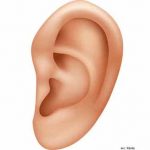Metals Used in Medical Devices
21 October 2019
| Metals and metal alloys are commonly used in implanted medical devices and in inserts like amalgam dental fillings, and these materials are sometimes in contact with parts of the body for extended periods of time. Part of the FDA’s evaluation to determine whether a medical device is safe and effective involves reviewing information about metals and other materials used in the device. | |
| The FDA has heard concerns raised by patients and other device users, and we have received adverse event reports that note biological responses to certain metals used in medical devices. Based on our evaluation, we believe the current evidence, although limited, suggests some individuals may be predisposed to develop a local or systemic immune or inflammatory reaction when exposed to certain metals contained in select implantable devices.
The symptoms some people have noted may be limited to the region where the device is implanted or may be more generalized. Reported systemic symptoms include fatigue, rash, joint and muscle pain, and weakness. Although uncommon and varied, these symptoms can sometimes mimic more well-established inflammatory conditions, such as systemic lupus erythematosus. |
|
| Author(s) | Source |
| FDA | FDA, 10/21/2019 |
| This is a post of a scientific or business information. The information given here is checked thoroughly by “Implant-Register”. However we can´t be responsible for the content. Contact the publisher, if you have questions. You may inform us about changes of the information to improve the Register. | |
| Comments: n/a let us know |
|
Find NEWS and PUBLICATIONS here according to your interests or use the search box.









